Here's a pyparsing solution that uses a self-modifying grammar to dynamically match the correct closing brace character.
from pyparsing import *
data = '(gimme [some {nested, nested [lists]}])'
opening = oneOf("( { [")
nonBracePrintables = ''.join(c for c in printables if c not in '(){}[]')
closingFor = dict(zip("({[",")}]"))
closing = Forward()
# initialize closing with an expression
closing << NoMatch()
closingStack = []
def pushClosing(t):
closingStack.append(closing.expr)
closing << Literal( closingFor[t[0]] )
def popClosing():
closing << closingStack.pop()
opening.setParseAction(pushClosing)
closing.setParseAction(popClosing)
matchedNesting = nestedExpr( opening, closing, Word(alphas) | Word(nonBracePrintables) )
print matchedNesting.parseString(data).asList()
prints:
[['gimme', ['some', ['nested', ',', 'nested', ['lists']]]]]
Updated: I posted the above solution because I had actually written it over a year ago as an experiment. I just took a closer look at your original post, and it made me think of the recursive type definition created by the operatorPrecedence method, and so I redid this solution, using your original approach - much simpler to follow! (might have a left-recursion issue with the right input data though, not thoroughly tested):
from pyparsing import *
enclosed = Forward()
nestedParens = nestedExpr('(', ')', content=enclosed)
nestedBrackets = nestedExpr('[', ']', content=enclosed)
nestedCurlies = nestedExpr('{', '}', content=enclosed)
enclosed << (Word(alphas) | ',' | nestedParens | nestedBrackets | nestedCurlies)
data = '(gimme [some {nested, nested [lists]}])'
print enclosed.parseString(data).asList()
Gives:
[['gimme', ['some', ['nested', ',', 'nested', ['lists']]]]]
EDITED:
Here is a diagram of the updated parser, using the railroad diagramming support coming in pyparsing 3.0.

